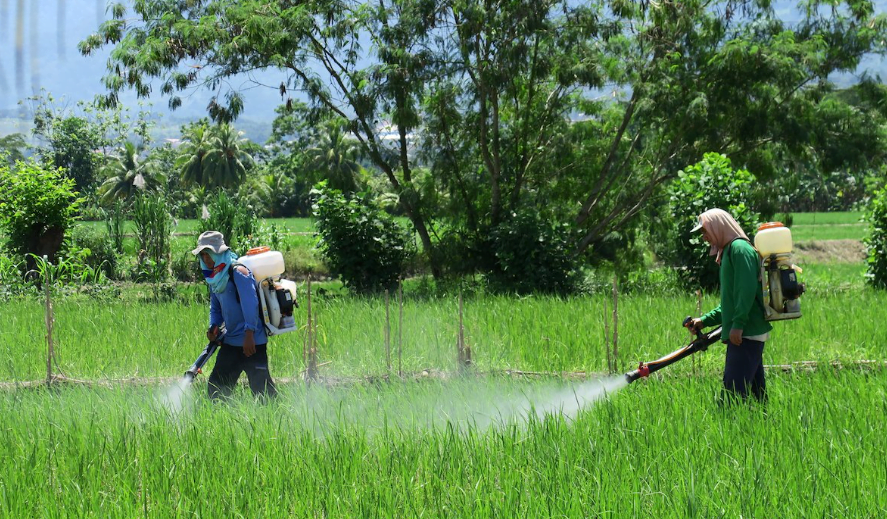is agricultural chemicals a good career path, the Agrochemical Industry The agrochemical industry plays a critical role in supporting global agriculture by providing essential chemical inputs for crop protection, plant nutrition, and pest management. A career in agricultural chemicals offers diverse opportunities to contribute to food production, environmental sustainability, and technological advancements.
What are Agricultural Chemicals
Agricultural chemicals play a vital role in modern agriculture by contributing to crop production, protecting plants from pests and diseases, and enhancing overall agricultural efficiency. These chemicals encompass a wide range of substances such as fertilizers, herbicides, insecticides, and fungicides, which are used to optimize crop growth, improve yields, and ensure food security. They are designed to address specific agricultural challenges and promote sustainable farming practices.
The Role of Agricultural Chemicals in Agriculture
Agricultural chemicals have revolutionized the agricultural industry by offering effective solutions to various challenges faced by farmers. They help control weed infestations, manage pests and diseases, provide essential nutrients to plants, and improve soil fertility. By using agricultural chemicals judiciously, farmers can minimize crop losses, increase yields, and improve the quality of agricultural products. Furthermore, these chemicals can contribute to the adoption of sustainable farming practices by reducing the need for excessive land use, water consumption, and manual labor.
The Benefits of a Career in Agricultural Chemicals
A career in agricultural chemicals offers numerous benefits for individuals passionate about agriculture and environmental sustainability. Professionals in this field have the opportunity to contribute to the development and implementation of innovative chemical solutions that improve crop productivity, reduce environmental impact, and enhance food safety. They play a crucial role in research and development, regulatory compliance, sales and marketing, and technical support, ensuring the effective use and responsible handling of agricultural chemicals.
The Challenges of a Career in Agricultural Chemicals
Working in the field of agricultural chemicals presents its own set of challenges. Professionals need to stay updated with the latest scientific advancements, regulatory requirements, and industry trends. They must navigate complex agricultural systems, collaborate with farmers and agricultural experts, and address concerns related to environmental impact and human health. Moreover, the industry is subject to changing market demands, weather patterns, and evolving agricultural practices, requiring professionals to adapt and innovate continuously.
Is Agricultural Chemicals a Good Career Path for You?
Choosing a career in agricultural chemicals requires a genuine interest in agriculture, environmental stewardship, and the desire to contribute to sustainable food production. It offers a diverse range of opportunities across various domains, including research and development, quality control, sales and marketing, regulatory affairs, and consulting. Individuals considering this career path should possess strong analytical and problem-solving skills, a passion for innovation, and the ability to work collaboratively with diverse stakeholders. It is also essential to be aware of the challenges associated with the industry and stay abreast of emerging trends and technologies that can shape the future of agricultural chemicals.
Growing Demand for Agricultural Chemicals With the world’s population steadily increasing, the demand for food and agricultural products is on the rise. This creates a significant need for agricultural chemicals to enhance crop productivity, control pests and diseases, and improve agricultural practices. As a result, the agrochemical industry offers promising career prospects due to its essential role in ensuring food security and sustainable farming practices.
Roles in Research and Development Research and development (R&D) is a crucial aspect of the agrochemical industry. Scientists and researchers are at the forefront of developing innovative and effective agricultural chemicals. Careers in R&D involve conducting experiments, analyzing data, and exploring new solutions to address emerging challenges in crop protection and plant health. These roles contribute to advancing the industry and offer opportunities for innovation and scientific discovery.
Regulatory Affairs and Compliance Regulatory affairs professionals play a vital role in ensuring that agricultural chemicals meet safety and environmental standards. They navigate complex regulatory frameworks, monitor compliance, and manage the registration and approval processes for new products. Careers in regulatory affairs require a strong understanding of regulations, scientific expertise, and attention to detail to ensure the responsible use of agricultural chemicals.
Sales and Marketing Opportunities The agrochemical industry relies on effective sales and marketing strategies to promote and distribute its products. Sales representatives and marketing professionals play a crucial role in educating farmers about the benefits of agricultural chemicals, building relationships, and meeting sales targets. Careers in sales and marketing offer opportunities for communication, relationship-building, and market analysis.
Technical Support and Agronomy Technical support specialists and agronomists provide on-the-ground assistance to farmers, helping them optimize the use of agricultural chemicals and implement effective crop management practices. These professionals offer guidance on product selection, application techniques, and best practices for sustainable agriculture. Careers in technical support and agronomy enable individuals to work directly with farmers and contribute to their success.
Environmental Stewardship and Sustainability The agrochemical industry recognizes the importance of environmental stewardship and sustainability. Careers in this field involve developing and promoting sustainable agricultural practices, reducing environmental impacts, and addressing challenges related to climate change and biodiversity. Professionals in sustainability and environmental management play a crucial role in ensuring the responsible use of agricultural chemicals and fostering sustainable farming systems.
Technological Advancements and Digital Agriculture The agrochemical industry is embracing technological advancements and digital agriculture to improve efficiency, precision, and sustainability. Careers in precision agriculture, data analytics, and digital solutions offer exciting opportunities to integrate cutting-edge technologies into agricultural practices. These roles contribute to the development of smart farming systems, remote sensing, and precision application techniques.
In conclusion, a career in agricultural chemicals presents a range of opportunities to contribute to global food security, environmental sustainability, and technological advancements. With growing demand for agricultural products, research and development, regulatory affairs, sales and marketing, technical support, sustainability, and digital agriculture are all promising career paths within the agrochemical industry. By joining this field, individuals can make a meaningful impact on the agricultural sector while embracing innovation and addressing the challenges of a rapidly changing world.

